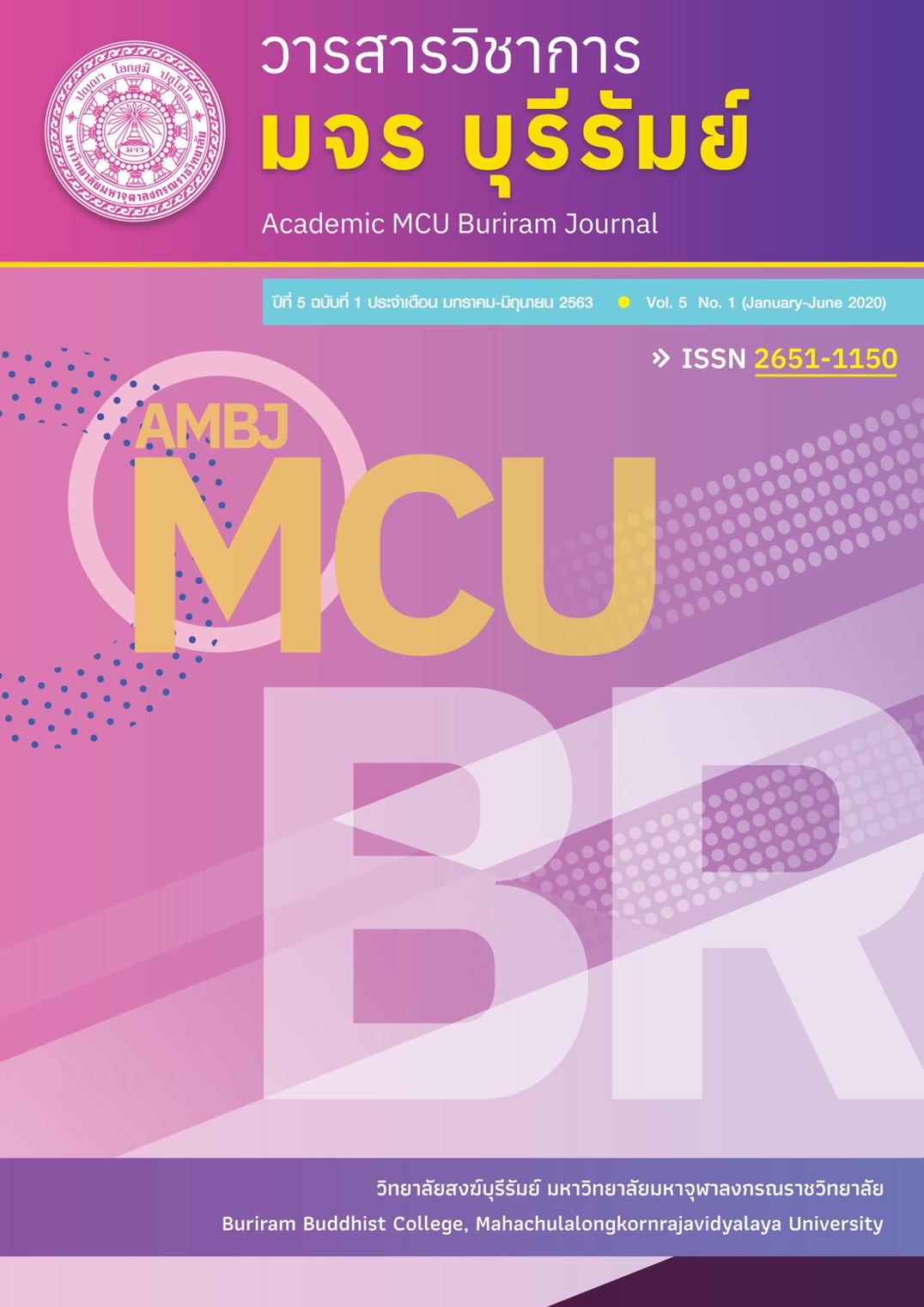The Developmental Model of Buddhist Wisdom and Tradition and Promotion of Learning of People in the Southern Isan Region
Keywords:
The Model of Development, The Buddhist Wisdom and Tradition, The Promotion of Learning, The People in Southern-Isan RegionAbstract
This research article has the objectives 1) to study of the Buddhist wisdom and tradition of the people in the Southern-Isan region, 2) to study the Buddhist traditional wisdom and learning of the people that appears in the Southern-Isan region and 3) to study of the model for developing Buddhist wisdom and traditions with the promotion of learning of people in the Southern-Isan region.
The result of the research found that;
Wisdom is the knowledge of the people in the local community with accumulation from experience. The duration of continuous learning is living in harmony with nature, then passed on to the local traditions of the people in the Southern-Isan region.
The wisdom and tradition of the people that appear in the Southern-Isan region are as follows: (1) Chokchai District, Nakhon Ratchasima Province organized activities to make candles. It is to create unity in all houses, temples, schools (Bowon), which is organized annually, (2) Nong Hong District, Buri Ram Province has activity for fireballs which demonstrate the worship of beliefs about the ceremony for rain or related agencies have performed the ritual, (3) Nong Bua Daeng District, Chaiyaphum Province has activity of tradition of merit making, incense sticks. The community organized activities to show respect and respect for the Triple Gem and (4) Tha Tum District, Surin Province. There is activity with the ordination of elephants to ordain as a means to renew age of Buddhism.
The developmental model of Buddhist wisdom and tradition and promotion of learning of people in the Southern-Isan region have 4 types which are (1) the form of promotion and development of knowledge of Buddhist wisdom and traditions. There are stipulations that must be learned about traditions, cultures and rituals, there is creating and seeking knowledge, there is a knowledge process, there is creative thinking, there has been written book in order to be a written development to be a prototype or original knowledge to be used in the study of the same form in the locality, (2) the form of promotion and development of wisdom transfer according to modern science which is information in the community for creating unity or creating new knowledge for the community to receive information and information quickly helping to coordinate the benefits of knowledge and traditional Buddhist wisdom, both traditional knowledge and modern knowledge today in order to integrate modernly, (3) the form of promotion and development for the creation of a network of related agencies, with training to create learning processes based on principles, methods, and additional knowledge, there is create unity, there is exchange of knowledge. Coordinate for efficiency able to create knowledge and opinions according to the model, will exchange knowledge and experience and departments within the organization (4) the form of promotion and development of awareness raising, preservation of Buddhist traditions must follow the Buddhist principles in accordance with a good life , it is building prosperity and happiness for both ourselves and society, on the other hand, it is volunteer creation to contribute to society, community cooperation and it is development according to the process to reach the goal by using knowledge, understanding, creating awareness and awareness of participation.
Downloads
Published
How to Cite
Issue
Section
License
ทัศนะและความคิดเห็นที่ปรากฏในบทความวารสารฉบับนี้ถือเป็นความรับผิดชอบของผู้เขียนบทความนั้น ไม่ถือเป็นทัศนะและความรับผิดชอบของบรรณาธิการ





